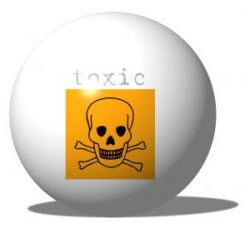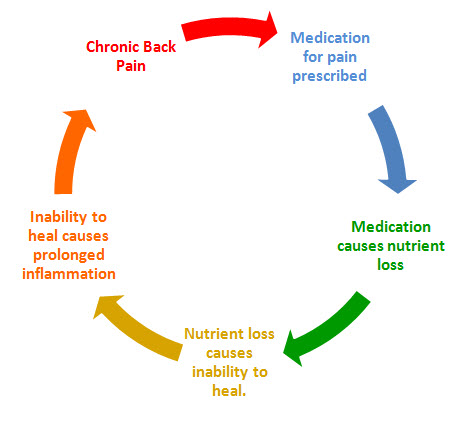Genetic testing for gluten intolerance is available here
Archive for the ‘Announcements’ Category
Dr. Peter Osborne Interview on Fox News – Gluten Intolerance
Friday, May 21st, 2010Dr. Peter Osborne’s Gluten Free Meeting May 2010
Thursday, May 20th, 2010 Restoring your health after years of gluten exposure can be challenging. The video below is part 1 of this 5 part series on health restoration…
Restoring your health after years of gluten exposure can be challenging. The video below is part 1 of this 5 part series on health restoration…
If you would like to join Gluten Free Society, click here…
Grass Fed Dairy Now Available
Tuesday, May 11th, 2010 Dr. Osborne has arranged for delivery of grass fed milk and butter from 45 Farms. Delivery will be every Saturday rain or shine promptly from 10-11 am, 45 Farms will have a van in front of Dr. Osborne’s office at Town Center Wellness. If you have any questions please call us or send an email.
Dr. Osborne has arranged for delivery of grass fed milk and butter from 45 Farms. Delivery will be every Saturday rain or shine promptly from 10-11 am, 45 Farms will have a van in front of Dr. Osborne’s office at Town Center Wellness. If you have any questions please call us or send an email.
281-240-2229
towncenterwellness@gmail.com
Leaky Gut Syndrome and Autoimmune Disease
Thursday, March 4th, 2010 A recent paper published in the Annals of the New York Acedemy of Sciences connects intestinal permeability (AKA leaky gut syndrome) with the development of autoimmune diseases. The authors base their findings on what we know of celiac disease and Type I Diabetes. Both diseases share the same HLA-DQ genetics. As well, they both share the same environmental trigger -Gluten.
A recent paper published in the Annals of the New York Acedemy of Sciences connects intestinal permeability (AKA leaky gut syndrome) with the development of autoimmune diseases. The authors base their findings on what we know of celiac disease and Type I Diabetes. Both diseases share the same HLA-DQ genetics. As well, they both share the same environmental trigger -Gluten.
Source:
Ann N Y Acad Sci. 2009 May;1165:195-205.
Most people assume that celiac disease and gluten sensitivity are the same thing. This archaic thought is rapidly changing. Although it is well established that gluten often impacts the villi of the small intestine, it has been shown to affect the body in a variety of other ways. These differences account for the massive failure of doctors to diagnose gluten sensitivity. Below is a diagram of environmental triggers to intestinal permeability (leaky gut). You will find that gluten sensitivity can directly and indirectly contribute to this problem. To the keen observer, this diagram illustrates why simple antibody testing fails to accurately diagnosis gluten sensitivity. Antibody production is only one lab component of a multi-faceted problem.
Click on image to enlarge…
How Does Gluten Play a Role in All of These Factors?
- Gluten – Gluten directly impacts intestinal integrity through zonulin production. Zonulin is a protein that causes directly causes leaky gut.
- Antibodies – Gluten contributes to antibody formation. Antibodies can cause the secretion of inflammatory chemicals leading to tissue damage. Additionally, through a process called molecular mimicry, antibodies can cross react with the tissues of the body causing autoimmune disease. Lab tests measuring these antibodies are typically not associated with gluten because most doctors are not trained adequately to identify the connection.
- Medications – Many medications commonly contain gluten leading to a direct effect. However, many chronic health conditions caused by gluten sensitivity are misdiagnosed leading to medicine prescriptions that are not only unnecessary, but can be detrimental to the gastrointestinal tract. Anti-acid medications are a common example. These medications predispose to infection and lead to abnormal bacteria presence in the gut. Over utilization of antibiotics to treat viral infection is another example.
- Stress – Although not a physical stressor, gluten is a chemical stressor on the body. Chemical stress comes in many forms. One of them is vitamin and mineral deficiency. Loss of key nutrients causes a fundamental breakdown in the body’s ability to modulate the healing and repair process.
- Bacteria – Gluten ingestion causes detrimental changes in intestinal flora (AKA gut dysbiosis) predisposing to infection. This is one of the reasons why so many yogurt companies are adding beneficial bacteria to their products. Gut dysbiosis is an epidemic in the U.S.
- Cytokines – Gluten induces the production of pro-inflammatory cytokines (chemicals that damage cells).
- Neurotransmitters – Gluten causes neurochemical changes in the production of neurotransmitters (chemicals that allow the nervous system to communicate). Examples include: serotonin, dopamine, acetylcholine, epinephrine, and histamine. Gluten is also a neurotoxin that has been shown to damage nerve tissue. This is the reason so many with neurological disease (autism, ADD, bipolar, schizophrenia, neuropathy, epilepsy, etc.) do well on a gluten free diet.
- Digestive chemicals – Gluten can damage the intestine, the pancreas, the liver, and the gall bladder. All of these organs play a pivotal role in the body’s ability to produce digestive chemicals and enzymes. When this mechanism is compromised, digestive processes start to break down and become ineffective.
Sum it all up –
Leaky gut contributes to autoimmune disease. The only known cause for any autoimmune disease is gluten sensitivity. We are blind fools to ignore this connection because it does not fit the status quo of the allopathic medical paradigm. If you have autoimmune disease and have not investigated gluten sensitivity as a contributing factor, you should. Learn more about genetic testing for gluten sensitivity now!
You can read more about gluten sensitivity on our gluten free resource page…
Top 7 Foods to Avoid
Friday, February 12th, 2010 Liz Vaccariello, Editor in Chief of Prevention Magazine, recently interviewed several experts on food healthfulness and safety. She asked, “What foods do you avoid”, and was surprised by some of the answers.
Liz Vaccariello, Editor in Chief of Prevention Magazine, recently interviewed several experts on food healthfulness and safety. She asked, “What foods do you avoid”, and was surprised by some of the answers.
1. Canned Tomatoes, Canned Soup, Canned Green Beens
Recently, Consumer Reports magazine found the chemical bisphenol-A (BPA) in the resin lining of many common food brands. BPA is used for food preservation, but is a synthetic estrogen that has been linked to many illnesses including heart disease, diabetes, and reproductive issues. Consumer Reports found the highest levels to be in canned green beans and soups. Fredrick vom Saal, PhD, an endocrinologist at the University of Missouri who studies bisphenol-A (BPA) states that acidic foods such as tomatoes can also cause the BPA to leach into the food, at a rate that exceeds 50 micrograms per liter. Dr. Vom Saal recommends choosing tomatoes in glass bottles or Tetra Pak boxes.
2. Corn-Fed Beef
Cows evolved eating grass, but today’s farmers feed their animals corn and soybeans, which fatten the animals faster for slaughter. A recent study conducted by the USDA and researchers from Clemson University found that corn-fed beef is lower in beta-carotene, vitamin E, omega-3 fatty acids, calcium, magnesium, and potassium than grass fed beef. It is also higher in saturated fat. A study from Purdue University found that corn fed beef contains higher levels of omega-6 fatty acids, which may encourage inflammation in the body and may lead to bone loss. Grass-fed beef can be found at specialty grocers, farmers markets, and nationally at Whole Foods.
3. Microwave Popcorn
A big danger from microwave popcorn is burns from the steam that escapes when the bag is opened. Two chemicals in microwave popcorn have been linked to serious illness. In January 2008, the top four manufacturers removed diacetyl as a butter-flavoring agent in the products because it was linked to lung injuries. ConAgra Foods, General Mills, and the American Pop Corn Company (that sells Orville Redenbacker, Act II, Pop Secret and Jolly Time) have changed their recipes to exclude diacetyl.
More recently, chemicals such as perfluorooctanoic acid (PFOA) have been found to be a part of the lining of the bag, which leaches into the food during microwave cooking. This chemical has been linked to infertility in a recent study from UCLA. In animal testing, the chemicals are linked to liver, testicular, and pancreatic cancer. Olga Naidenko, PhD, a senior scientist for the Environmental Working Group, says “[PFOA] stay in your body for years and accumulate there.” Some larger manufacturers have promised to phase out PFOA by 2015 under a voluntary EPA plan, but until then it is best to make popcorn using canola oil in a covered saucepan or skillet.
4. Nonorganic Potatoes and Carrots
Root vegetables absorb the pesticides that wind up in the soil. In the case of potatoes, they are also treated with fungicides during the growing season, then sprayed with herbicides to kill off the fibrous vines before harvesting. The potatoes are treated once more at the processing plant to delay sprouting. Jeffrey Moyer, chair of the National Organic Standards Board, says that washing will not remove all the chemicals that have been absorbed into the flesh of the vegetables, and encourages the purchase of organic produce.
5. Farmed Salmon
Salmon is promoted as one of the healthiest foods for the heart because it contains high levels of omega-3 fatty acids. However, when choosing salmon, it is best to choose wild-caught Alaska salmon over farmed salmon. Farmed salmon has been shown to contain 10 times more toxins, including Polychlorinated biphenyls (PCB) and dioxin, than wild salmon. Farmed salmon are fatter, and the PCBs are sequestered into the fat and remain there. In addition, salmon farms can harbor parasites, such as sea lice and kudoa thyrsites, so fishers use pesticides and antibiotics that can become part of your fish dinner. Many industrial salmon farms use artificial colorings to make the fish more appealing to consumers, some of which can be harmful to health.
If a package says fresh Atlantic salmon, it is likely farmed, according to David Carpenter, MD, director of the Institute for Health and the Environment at the University at Albany and publisher of a major study in the journal Science on contamination in fish. He states there are no longer commercial fisheries for wild Atlantic salmon.
6. Milk Produced with Artificial Hormones
Rick North, project director of the Campaign for Safe Food at the Oregon Physicians for Social Responsibility, encourages the purchase of hormone-free or organic milk. Conventional milk farmers treat their dairy cattle with recombinant bovine growth hormone (rBGH or rBST) to boost milk production. These can lead to a higher level of a hormone in the casein called insulin-like growth factor (IGF-1) in humans that is linked to breast, prostate, and colon cancer. Organic milk farmers cannot use artificial hormones in their dairy cattle. Other manufactures may list rBGH-free or rBST-free on the package label.
7. Nonorganic Apples and Pears
Many fruits are treated with pesticides. Those in which the peeling or skin is consumed are at highest risk to people. Over time, farming techniques for fruits such as apples have caused the fruit to lose its resistance to pests, and therefore they are sprayed more frequently. Washing the fruit thoroughly and removing the skin is recommended, but this may not eliminate the chemical residue entirely. In addition, removing the peeling removes many of the healthful benefits of fruit, such as fiber. According to the Daily Green, the best fruits to buy organic include apples, pears, grapes, and cherries.
This is an excellent article shedding light on many of the foods not commonly considered unhealthy.
Farm raised fish and corn fed beef are often overlooked. People generally do not consider the source of their animal foods.
Other foods that should be added to the list include:
- Packaged or processed foods
- Non-organic produce
- Grains
- Sugars
- Dairy (from corn fed cows – even if it is organic)
- Foods containing hydrogenated fats (trans fat)
- High fructose corn syrup
- Pasteurized juices
Following these simple rules can help you steer clear of poor food choices:
- Limit eating out as much as possible
- If the ingredient label has any words that you cannot pronounce without a chemistry degree avoid it.
- Buy your produce when it is in season (locally if possible)
- Grocery shop for your next meal, not for the next two weeks. Foods should be perishable. Buy and eat them as fresh as possible.
- Before you eat, ask yourself the following questions:
Is this food healthy? Am I really hungry?
Remember, your body and your health are gifts from God. Don’t desecrate your temple!













